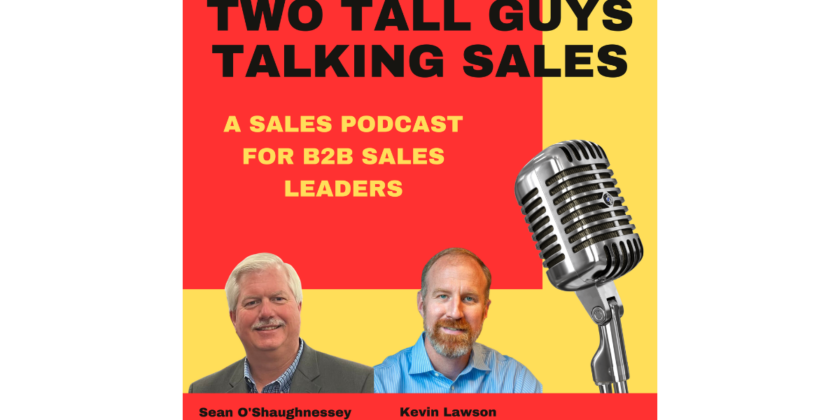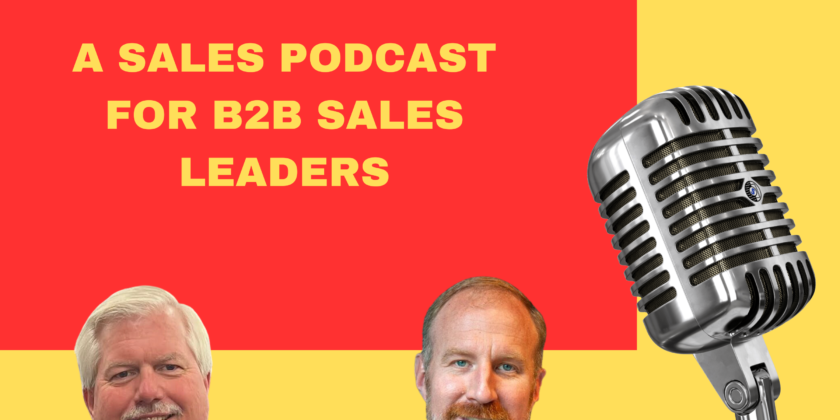In the annals of American business history, few stories are as captivating as the rise of McDonald’s, immortalized in the 2016 biographical drama film “The Founder.” The story of Ray Kroc, a struggling milkshake machine salesman who transformed a local drive-in into a global fast-food empire, is a classic tale of ambition, innovation, and, controversially, ruthless business acumen.
However, behind the gripping narrative lies a valuable lesson for small businesses today. The McDonald brothers, Richard and Maurice, were entrepreneurs who envisioned a revolutionary fast-food system. Their only significant flaw? They relied heavily on a single salesperson – Ray Kroc – to sell their franchise concept. This dependency proved to be their Achilles’ heel and resulted in them losing control over their brand.
The McDonald brothers had an excellent product and a promising business model. But the near-total reliance on Kroc as their sole franchise salesperson left them vulnerable. When Kroc’s ambition overstepped the boundaries they were comfortable with, they had no alternative but to endure the adverse outcomes, including the eventual loss of their company.
Small businesses must take this lesson to heart in today’s rapidly evolving business landscape. A diverse sales team is no longer a luxury; it’s a necessity. Here’s why:
Control the Message: The Power of Diversity Over Singularity
In the evolving business landscape, the brand message is one of the most pivotal components for success. It is the heartbeat of your organization, resonating with the values, goals, and ethos your company embodies. Yet, when this message is funneled through a singular voice, it often becomes vulnerable to unintentional distortions and personal biases. Imagine an intricate musical piece being played only on one instrument – while it may still carry the tune, it misses the richness and depth that a full orchestra brings.
With a sole salesperson at the helm, there’s a heightened risk of this narrative skew. Their personal experiences, perspectives, or unique communication styles can inadvertently overshadow or drift from the brand’s foundational message. This is not to question the competence or intentions of the salesperson but to understand human nature. We all carry our filters and interpret things based on our lenses. In contrast, a diverse sales team acts as a safeguard. When guided by a unified strategy, multiple voices can reinforce the brand’s core message, iron out anomalies, and present a more rounded, authentic narrative to potential clients.
Moreover, by diversifying the conveyors of your brand message, you’re preserving its integrity and broadening its reach. Different salespeople can resonate differently with a varied clientele, ensuring your brand message is consistent and universally relatable. It’s about striking a balance between consistency and versatility, and in the intricate dance of sales, this balance can make all the difference.
Reduced Dependency: Spreading the Net Wide for Steady Growth
The tale of the McDonald brothers provides a cautionary narrative about the perils of leaning heavily on a singular entity for business advancement. While it seems convenient and efficient in the short term to place the onus of sales on one high-performing individual, this structure is fraught with risks. Over-reliance on a single salesperson can be likened to building a house on a singular pillar – while it might hold for a while, a single crack can bring the entire edifice crashing down.
A broad and diversified sales team acts as a buffer against such risks. Each member brings their strengths to the table, ensuring that the entire operation doesn’t come to a standstill if one cog in the machinery malfunctions. Whether it’s due to changing personal interests, unforeseen circumstances, or the natural evolution of a career, key players might exit the stage at some point. In such scenarios, a well-rounded sales team ensures that the business doesn’t just survive but thrives, adjusting and recalibrating with minimal disruptions.
Furthermore, reduced dependency on a single individual promotes collective growth and shared responsibility. It fosters an environment where team members motivate one another, learn from each other’s successes and setbacks, and drive the business forward as a united front. The lesson is clear: while individual brilliance is always welcome, the future of sustainable growth lies in collective strength and diversity.
Expanded Reach: The Power of Diversity in Scaling New Heights
A homogenous approach can stymie growth in a small company with a single salesperson. Imagine walking into a room where everyone thinks the same, has had the same experiences, and shares the same network. While there might be a comforting familiarity, the scope for fresh insights is limited. Enter a diverse sales team, a veritable melting pot of backgrounds, experiences, and worldviews. The breadth of knowledge and understanding they bring to the table allows businesses to see beyond the obvious and tap into uncharted territories.
Each member of a diverse sales team carries a unique professional, personal history, and distinct network. These networks, spanning various sectors, regions, and demographics, are like numerous doors waiting to be opened. A multicultural salesperson might provide insights into the buying behaviors of a particular community, while someone from a different industry background might spot parallels and opportunities overlooked by others. The cumulative effect is a richer, more nuanced understanding of a broad spectrum of potential clients, leading to more inclusive marketing strategies and products that cater to a broader audience.
Embracing such diversity isn’t just about ticking a box; it’s a strategic move. In a world where businesses vie for every inch of customer attention, a diverse sales team can be the very edge that sets a company apart, enabling it to resonate with a broader audience and ensuring that its message isn’t just heard but truly understood and embraced.
Increased Innovation: The Spark of Diverse Minds
Like any other sector, the world of sales thrives on fresh perspectives and new ideas. When sales teams resemble an echo chamber, echoing the same strategies and views, stagnation is inevitable. However, a diverse group of salespeople, each hailing from varied experiences and backgrounds, becomes a cauldron of creativity. Every pitch, every strategy, and every solution they discuss is a culmination of their unique journeys, a blend of traditional wisdom and avant-garde ideas.
Consider a brainstorming session where a salesperson with a background in tech suggests leveraging a new tool. At the same time, another with experience in the arts offers a storytelling approach. Fusing these distinct perspectives can lead to a groundbreaking strategy that neither could have conceived alone. Such diversity acts as the lifeblood of innovation, pushing boundaries and constantly redefining what’s possible. It instigates challenges to the “that’s how we’ve always done it” mindset, compelling teams to iterate, refine, and reinvent.
Moreover, in a landscape where competition is rife, the companies that stand out are unafraid to think differently, to tread unexplored paths. A diverse sales team becomes an organization’s compass in such scenarios, pointing toward opportunities for innovation, ensuring that the business meets its sales targets and pioneers change, and setting benchmarks for others to follow.
The story of the McDonald brothers and Ray Kroc dramatized in “The Founder,” offers an invaluable business lesson. While having an innovative product and a robust business model is essential, having a diverse sales team that can control your brand message, reduce dependency, expand your market reach, and fuel innovation is equally crucial.
Small businesses today must avoid the McDonald brothers’ error of over-reliance on a single salesperson. By investing in a diverse and well-rounded sales team, companies can ensure sustainable growth and maintain control over their brand’s destiny.
In the early stages of a business, budgetary constraints can make it challenging to expand an in-house sales team, even when the glaring perils of relying on a lone salesperson become evident. But, in our interconnected age, physical presence and full-time employment are just some of the means to tap into top-tier talent. Outsourcing has emerged as a powerful strategy to bolster a salesforce without unduly straining the finances.
Outsourced salespeople or fractional sales professionals offer a compelling solution. These are seasoned veterans, adept at navigating the intricacies of the sales realm, who can be brought on board for specific campaigns or durations. Their expertise ensures businesses benefit from their wealth of experience without committing to long-term overheads. Similarly, companies specializing in business-development representation can be goldmines for startups and SMEs. They can rapidly amplify a company’s outreach, bringing in leads and opening doors that an individual salesperson might need help to knock on. Leveraging such services, businesses can enjoy the advantages of a diversified team while maintaining a lean operational structure.
With Fractional Vice President’s of Sales, such as Sean O’Shaughnessey of New Sales Expert, it is possible to manage a diverse group of sellers that are not direct company employees. While a less experienced sales manager or the company owner may balk at this type of challenge, it perfectly aligns with Sean’s skills and expertise. Don’t let the lack of sales management expertise prevent the expansion of your company’s sales dreams.
The modern sales landscape offers various flexible solutions for companies eager to grow beyond a singular sales voice. Whether through fractional sales leadership, fractional sales roles, outsourced professionals, and dedicated BDR firms, businesses can craft a multi-dimensional sales strategy that combines the nimbleness of a small team with the expansive reach of a more significant force.
Crafting Tomorrow’s Sales Strategy with Lessons from the Past
The McDonald’s narrative, as described in the movie, “The Founder,” is a poignant reminder of the intricate dynamics between innovation, ambition, and brand representation. While the ambition to grow is innate in every business, the path to achieving this growth can significantly shape its future. As we stand on the precipice of a rapidly changing global market, with opportunities and challenges alike, businesses must pivot towards a more inclusive and diversified sales strategy. Embracing diversity, harnessing the power of collective networks, and leveraging innovative outsourcing solutions are not mere options—they’re necessities. Small businesses, in particular, have an exciting chance to rewrite their sales script, infusing it with the vigor of varied voices and expertise. The journey from a local idea to a global empire is fraught with decisions; ensuring that these decisions are made through a diverse prism can be the defining factor between mere survival and unparalleled success. Let the lessons from the past illuminate the road ahead, reminding us that in diversity lies immense strength and phenomenal potential.






